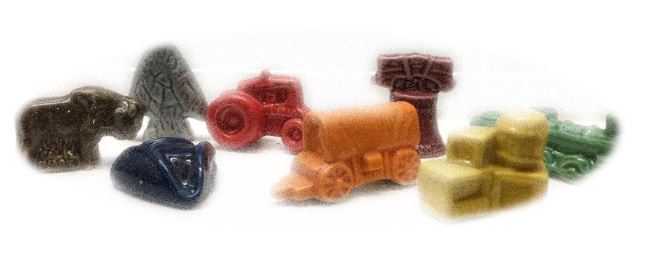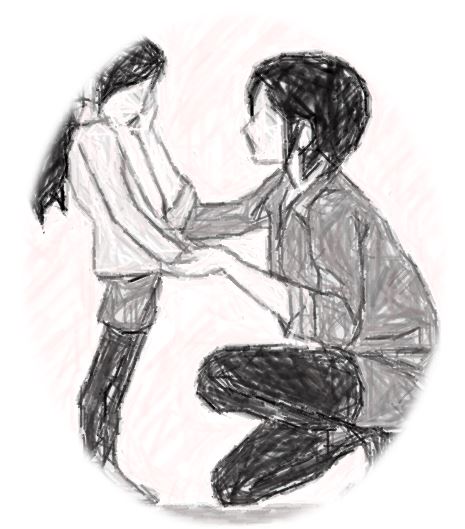
The Loss of Things
Many years ago I heard that Fannie Flagg was inspired to write a book because she found
a shoe box of memorabilia her aunt had left behind, just a shoe box, after a
life of living all that was left was a shoe box of miscellaneous things. That
thought has resonated with me for many years. I also think about what imprint
people make after their death when I saw a picture of the Chapel of Bones in Evora in Milan, Italy. All of those people had lived
and died and no would ever know who they were, what they did, who they loved,
how they lived- nothing, it was if they never existed. We know the biographies
of many famous and infamous people and of our own loved ones because of what
they left behind, their writings, their art, or their monuments. We can piece
together their life and they can live again in our mind or stories or movies.
As an immigrant I have moved from one country to another and as an immigrant I tend to connect with other immigrants- we have an understanding that those who have not left the land of their birth may not be able to comprehend. I left Canada when I was 13 with my parents, my father had been offered a job in California so of course I had no choice. We came with a large moving van full of our effects in boxes. We had to sort through things we would no longer need, like parkas and snow pants, and purchase things that we would need. We were lucky, in 1974 Americans loved Canadians. We also were lucky to be able to bring all of our worldly possessions with us.
In 1992 a cousin of mine immigrated here (California) from Ukraine. She came with one suitcase. A grown woman, one suitcase. She felt her life in USSR controlled Ukraine was so awful that she selected what could fit in one suitcase and left everything else behind. I often think, 'What would I put in one suit case?' Or even one shoe box? How does one condense one’s bits and pieces down to one small container. What we possess says a lot about us, especially in a capitalist culture like ours. Peter Menzel created a book of photos of families from around the world with their possessions on display. As expected the United States family had a lot more possessions than say, a family in Bhutan.
I am 58, I live in a small but beautiful cabin in the woods on top of a mountain but I haven’t always been so lucky. I have lived in tiny apartments, run down, old leaky buildings, cute suburban tract housing and even a trailer for a period of time when I was homeless with 3 kids and a very sick husband. I have packed my belongings in boxes more times than I can count, I have stored my stuff in garages and paid money to store my things in facilities. Initially my moves were to bigger and better homes until life events changed and I was compelled to downsize and get rid of belongings. With each move I was forced to choose what to keep and what to give away. Sometimes I overlooked something and it was left behind, like my son’s red wagon. Every time, well-meaning people told me, “Well, you have your health and your kids, those are ‘just things’.”
Just things. Yeah, just things. Even the most primitive cultures living today have possessions, even archeological sites and burial grounds show humans buried with things. Maybe they aren’t ‘just things’, maybe it is essential to being human that we collect things to carry with us, objects to keep around us. Are they talismans? When I moved into my new home my partner and I had a lengthy and passionate discussion about what to keep because we do live in a small home. We realized that was valuable to one was not valuable to the other but that we needed to respect our own unique definition of what was valuable. For example, on my kitchen window sill I have a collection of Red Rose Wade figurines. They are of very little monetary value and not even particularly well-crafted but I love the little creatures. As I stand at the sink washing dishes or preparing food I see the statues and I am reminded of my mother and a childhood friend and the country of my childhood. Every night after dinner my mother made tea in a brown teapot, my friend and I would eagerly open the new box of Red Rose tea, the aroma of fresh tea wafting out, wondering which figurine would be in the box, humid, warm Montreal summer evenings, the sun setting behind a row of Lombardy poplars, kids voices coming in from the street to our window asking “Who’s finished dinner? Who wants to play?”….. all of that in a simple, tiny figurine. That’s why I keep them. When my great grandmother passed away the family discovered lace table clothes and crystal glasses all packed away. Apparently she was ‘keeping them for good company’. We never saw them at the table, who was she waiting for? Why we keep what we keep is a mystery to almost everyone but the person, asking them why they keep them could elicit tears or laughter. I have a wedding garter from one of my aunts that I keep in my jewelry box and when I open that drawer, I think of her. Can I still imagine my aunt and my grandmother without seeing those items? Sure, but like a song, an object opens a door in our mind that contains a unique moment in time, a memory with the sound, the sight, the smell, the emotion all packed into one feeling and we are transported to that very moment in our past.
Our meager treasurers tell a story, perhaps only we know the story, or perhaps our family and friends can piece together a story about us. They also show us and those around us what we have achieved, all of our living, our playing, our working, our joys and our struggles are contained in our belongings. It’s not that easy to leave them behind because they have become an extension of ourselves, who we have become as a human. If I had to choose between my mother, my child, my partner or a collection of figurines, of course I would leave the figurines behind. But who are those who are usually compelled to choose? Usually those who can least afford it. Do wealthy people have to make the choice, not usually, because money can buy them a large transport truck. It’s pretty easy for those with a lot to tell those with very little what they should leave behind. Placing value of someone else’s stuff is easy when you don’t have to give up your own.
I watch these people on our border who have come with a bag, suit case, or even nothing, just each other and I cannot imagine being in such dire straits that I would leave everything behind because anywhere was better than where I was. They have left behind their figurines, their crystal, their lace and their homes. Their home is chaotic, destroyed, dangerous or even completely gone. Little by little everything they worked has been lost, stolen or demolished. They have come to our door with their last and most precious possession- their children. And we are taking them away. The images and stories will haunt me for a long time. I am sorry if you can watch this story unfold and feel nothing but self-righteousness or even derision. I cannot judge them because I don’t know them. I do know that I would have to be at my lowest to find myself at the border of a country with nothing except my child. As hard as it was for me to lose my possessions I truly cannot imagine how it must feel to have my child taken from me. What have we become when we take that most valuable possession away from a parent? What more can we do to our fellow human beings and still call ourselves, human?
The Loss of Things.
It Shouldn’t Matter. But it does.


Comments